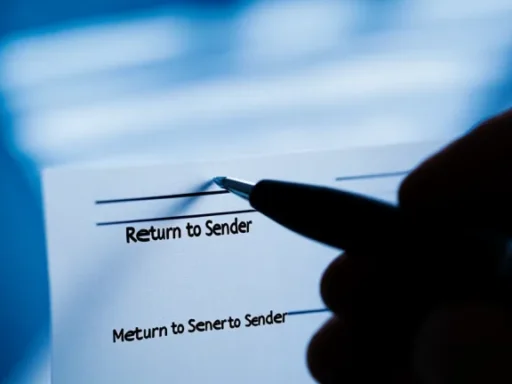Obtain The Exceptional Notarial Certificate for Your Driver’s License Now.
Notarize Your Driver’s License Now!
Getting a driver’s license is certainly challenging, especially when obtaining a notarial certificate is one of the steps. The notarial certificate for a driver’s license is the main instrument that manifests the truthfulness of the presented documents ensuring that they are legally accepted.
Familiarity with the purpose and steps on how to get a notarial certificate is the most effective solution to avoid troubles related to legal and time issues. Having this certification is a must whether one is renewing or getting the license for the first time, as it is crucial to the efficient and painless experience of the whole process.
The Concept of Notarial Certificates
One of the reasons that a notarial certificate is important is that it is a means of officially identifying the documents in addition to the copy of the driver’s license. Evidence of the validation of the documents is usually requested by these establishments to assure their legitimacy. Notary public offers these certificates, which indicate that certain documents are legal and the individuals signing them are the ones they claim to be.
Main Characteristics
- Certification: A notarial certificate tells the signer’s intent to sign and the signer’s identity and removes the chance of a fraudulent act.
- Legitimization: It gives the document legal authority, thus confirming its origin and purpose.
- Record Keeping: Notaries have a duty to keep up with the history of their notarial acts thus producing a legal track in the event of future disagreements.
Types of Notarial Certificates
- Acknowledgment: This form is applied by the signatory when he or she admits to sign the document of his or her own free will.
- Jurat: This is the method when the signer swears to the document, or he/she confirms the truthfulness of the document’s contents.
- Copy Certification: This type of authorization is being used to verify that the copy of the document is the same as the original one, and this is commonly used for driver’s licenses.
Requirements
- Personal Presence: Only the signatory in front of the notary should be the one present and visible in person.
- Proper Identification: One must produce valid identification documents, such as a passport or a government-issued ID card, to notarize a document.
- Complete Document: The document should be free of errors and marked out by the time notarization is taking place.
Common Uses
- Legal Transactions: Required in real estate transactions like buying, selling, and securing a mortgage, loan applications, and business contracts.
- Government Procedures: The paper works for passport applications, immigration processes, and renewing licenses that legally needed notarization.
- Personal Matters: These are forms about affidavits, the power of attorney, the last will, e-signing, financial matters, and giving legal advice.
- Preparation: Get the necessary papers and IDs for the application.
- Locate a Notary: The search for a notary public certified online or with local government agencies is the best first step.
- Sign in Presence: Affix your signature to the document while in the notary’s presence.
- Receive Certificate: Receive the notarial certificate which is an evidence for the document’s genuineness.
Recognizing the fundamentals of notarial certificates is like taking the veil off and complying is a guarantee for being secure during those very important transactions like driver’s license and other significant documents.
What a Notarial Certificate Does for a Driver License
A notarial certificate acts as the effective part of the verification and certification process of driving licenses. This ensures that the paperwork is legal and helps in the absence of conflicts that lead to unintended consequences.
Legal Importantance
A notarial certificate which is sealed to the driver license affirms the source of the documents. Notaries conduct the identification of the signatories by a strict check, thus keeping off fraudsters. This practice is an effective measure against fraud and theft of such identities which may break the law, thus maintaining legal transaction integrity. The state’s law then states this standard practice and makes it essential for people to be in compliance. Without the notarial certificate, one’s license can be invalid or be the cause of the contention in court.
Typical Uses
These are just a few of the many situations that you may encounter out of a notary certificate for a driver’s license to be needed. The following one are examples of them;
- License Renewals: Notary-verified copies of documents are usually required by states to renew a license faster.
- Out-of-State Transfers: In the case of license transfer to another state, the notarial certificate streamlines the identification and acceptance of the former license.
- International Applications: Most of the time notarial certificates are the ones that will pave the way to a particular US driver’s license in other countries, for example, the case in applying for an international driving permit.
- Copy Certification: Notaries are in the business of verifying that a driver’s license copy stands for the actual original, very legal and practical in both legal and administrative procedures.
Understanding that these issues are covered is very essential in compliance and making sure that one does not have difficulties related to their driver’s licenses in lawful terms.
How to Obtain a Notarial Certificate for Your Driver’s License
Getting a notarial certificate for a driver’s license is a simple matter. When you make sure all the necessary papers are available, it will be easier to continue with the procedure.
Required Documents
Feel free to get the following to obtain a notarial certificate for a driver’s license:
- Driver License: You should carry your driver’s license with you. Own a valid Washington driver’s license for personal usage.
- Identification: Be sure to have with you some form of identification, such as a passport or national ID, that has a correct photo of you and is valid.
- Completed Application Form: Fill out any application form required by the notary.
- Additional Planning: You should come prepared with any other documents, such as the address of your place of residence or personal contacts, in case the notary needs that information.
Step-by-Step Process
To have a notarial certificate for your driver’s license, please observe the following steps:
- Collect all Necessary Documents: Grab all the documents required as aforementioned
- Locate a Notary: Find out from the premises where the public notary is located, who is authorized to execute and certify such documents.
- Make An Appointment: Set a meeting with the notary, if necessary.
- Validation: The notary will conduct a check to verify the identification and ascertain that the driver’s license is genuine.
- Document Signing: Sign the necessary documents in front of the notary.
- Notarial Act: The notary will execute the certification process while also attaching the official notarial certificate.
- Payment: Settle any charges due for the notarial service.
By following these steps, you can achieve a smooth and trouble-free process of getting a notarial certificate for your driver’s license
Get Your Notarial Certificate Now!
Benefits of Having a Notarial Certificate of Driver License
Obtaining a notarial certificate for a driver’s license provides a number of benefits, especially in the areas of authentication and travel.
Authentication of the Is-ness
A notarial certificate that is attached to a driver’s license is a key way of establishing whether a document is genuine or fake. The presence of a notarial certificate means that the license is authentic and that the identity of the holder has been verified by an authorized notary. This process of validation helps prevent identity theft and fraud by ensuring that the driver’s license hasn’t been altered. For example, a notarized driver’s license can help in expediting the verification process and this could result in reduced potential when it comes to disputes such as those that may arise during traffic stops or legal proceedings.
International Travel
A notarized driver’s license can be of great help when one is traveling abroad. It is important to note that going to another country for the first time may be a very challenging affair. Many countries besides the original require extra validation for foreign documents, and one of the means of getting this validation is a notarial certificate. Therefore, by having a notarized driver’s license, you can use it as validation for international regulations. This is witnessed in cases like in the event of renting a car abroad or going for an international driving permit, a notarized license can be a boost in terms of simplicity and speed.
Potential Problems in the Process of Getting Notarial Services and the Ways to Deal with Them
When a person is getting a notarial certificate for a driver license, it is likely that one will face various problems. Recognizing and tackling these challenges in a timely manner can facilitate the whole process.
Most Frequent Mistakes
- Incomplete Documentation:Quite frequently, people commit mistakes by furnishing incomplete documents which invariably lead to endless hurdles and they, in turn, are likely to lose a chance of signing their documents. For example, it is not enough to have a valid picture ID or an expired driver’s license. Checking the list of the necessary stuff again before the appointment can prevent this problem from occurring.
- Improper Identification:The notaries should have access to an applicant’s valid identification to ascertain the signer’s identity. Showing expired or ineligible IDs is the fastest way and the most certain one to create significant delays. The photo ID that is issued by the government is recommended to use like a passport or a state ID to ensure a smooth verification.
- Scheduling Conflicts:It can be hard to find an available notary at a time that is good for you. Notary services might restrict their working hours, or demand an appointment to be booked in advance. Locate a notary with a flexible schedule and set your appointments early to avoid this situation.
- Fees and Payments:Unplanned charges for the notarial services might be very shocking. It is best to be informed about the fees that will be taken by the notary in advance as it will help you in terms of finance. Some notaries are known to be selective in payment procedures, so ask what payment methods are allowed before making payments.
- Prepare Thoroughly:It is necessary to have all the required documents with you, such as the actual driver’s license and a valid photo ID. Fill in any necessary application forms and consult with the notary if you are not sure about any extra documents needed. Being thoroughly prepared will help you to avoid delays.
- Verify Notary Credentials: Make sure that the notary has the authorization to carry out the notarial act that is required. Verifying the notary’s credentials and checking they are allowed to notarize driver’s license documents is a way of ensuring that the notary is complying with the law.
- Schedule Wisely: Pick a time for the appointment which will keep you from unanticipated delays. Be at the appointment early and remember to take all the necessary documents with you. This method of scheduling helps you to avoid the last-minute rush and guarantees enough time for the process.
- Understand the Process: Equip yourself with the knowledge of the steps you will go through in order to acquire a notarial certificate. You can predict what will happen during the identity verification and document signing stages and it keeps your mind at ease as well as makes you prepared.
- Stay Informed: Keep yourself updated on any changes in notarial laws or requirements. The rules may be modified making some documents and identification not available in the process. By being informed, you make sure you are compliant and the chances of the outdated procedures are minimal.
Building and sustaining such a level of awareness and observing these tips enable people to easily and effectively obtain a notarial certificate for a driver license.
Discover the Power of BlueNotary:
Integrate your Business, Title Company, or Law Firm to Satisfy your Customers and Decrease Turnaround
Get a document Notarized/Sign-up
Join the Free Notary Training Facebook Group
Conclusion
Securing a notarial certificate for a driver’s license is one of the most important steps in guaranteeing the document’s authenticity and legality. Legal complications can be avoided and the multitude of the verified identity benefits can be enjoyed by individuals by knowing the process, and being well prepared. This includes sourcing required documents, booking appointments and adhering to the right procedures.
Notarial certificates are used to prevent fraud and identity theft, offering peace of mind and legal protection. They are also convenient for international travel and multiple legal transactions. With the correct approach and awareness of potential challenges, obtaining a notarial certificate is an easy and efficient process.
Frequently Asked Questions
What is a notarial certificate, and why is it needed for a driver’s license?
A notarial certificate is an official document that declares the person who signed the statement to be true to one’s identity and that the contents of the documents are correct. The driver’s license is necessary to verify whether the required documents are original and to protect against fraud or identity theft.
What types of notarial certificates are mentioned in the article?
Notarial certificates come in three varieties, namely acknowledgment, jurat, and copy certification. Each of them has different functions such as identifying the signer, ensuring the truth of statements, and certifying copies of original documents.
What are the basic documents required to acquire a notarial certificate for the driver’s permit?
The original driver’s license, a valid photo identification, the completed application form, and supplementary documents if any are required by the notary are just what you need to have with you. By preparing these types of documents in advance you will avoid any obstacles in the process.
What do I have to do to be able to apply for a notarial certificate of my driver’s license?
Prepare the papers, look for a notary, book an appointment, do the identity verification, sign the documents in the notary’s presence, accomplish the notarial act, and make any payments if needed. These instructions will make your certificate quick to obtain.
How can a notarial certificate of a driver’s license help in the prevention of fraud and identity theft?
A notarial certificate gives the documents and the person who signed it the quality of trust, which makes it hard for fraudulent documents to be validated. This supplementary verification layer is what makes the theft of identity and other fraud impossible.
Hum yes indeed! But if the document is notorized it gets highly validation and becomes even suitable for foreign usage. All this can ease the completion of such processes as renting a car in a foreign country or applying for an international driving permit and hence it will lead to a more pleasant travel.
What are the common difficulties that may arise when getting a notarial certificate that verifies people’s identities?
A typical problem arises when people deal with insufficient documentation, inadequate identification, conflict in scheduling, and extra fees they did not anticipate. Being organized and well informed should help you not only cope with this situation but also leverage it to your advantage to a large extent.
How can I go through the process of a notarial certificate for the driver’s license without any hassles?
Get to be certain that the documents you are presenting are complete and accurate, validate the authority of your notary, choose the time of your visit to the notary that best suits you, understand the whole process well, get informed about any new changes in the notarial laws. Drilledness and being kept in the loop are the two important factors for an unproblematic time.








